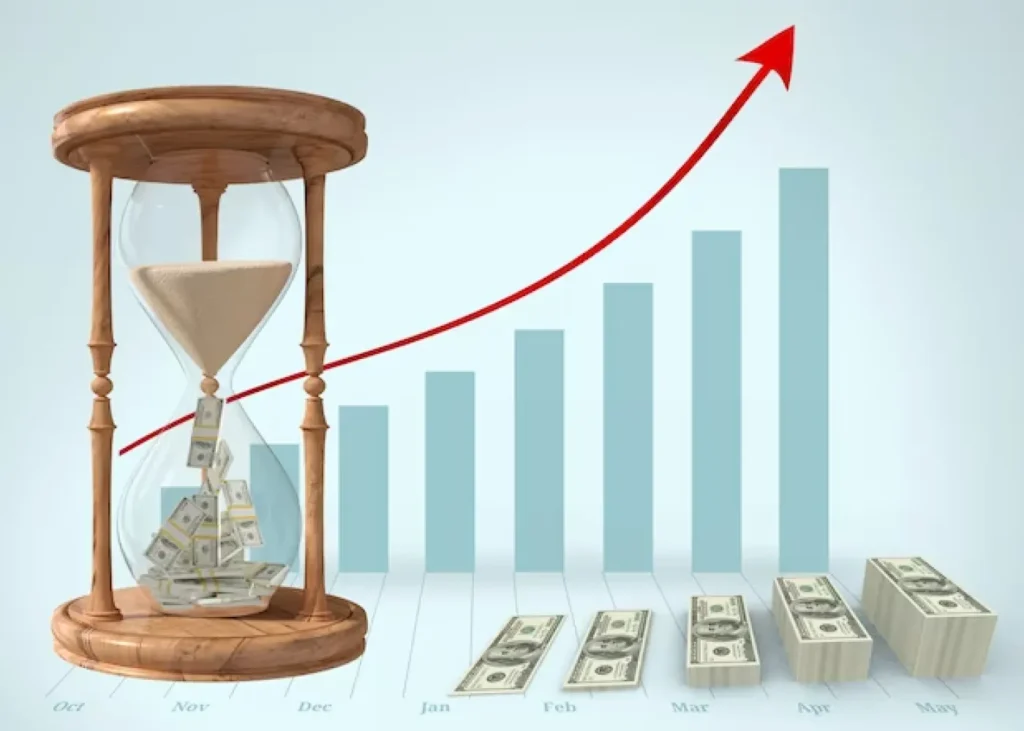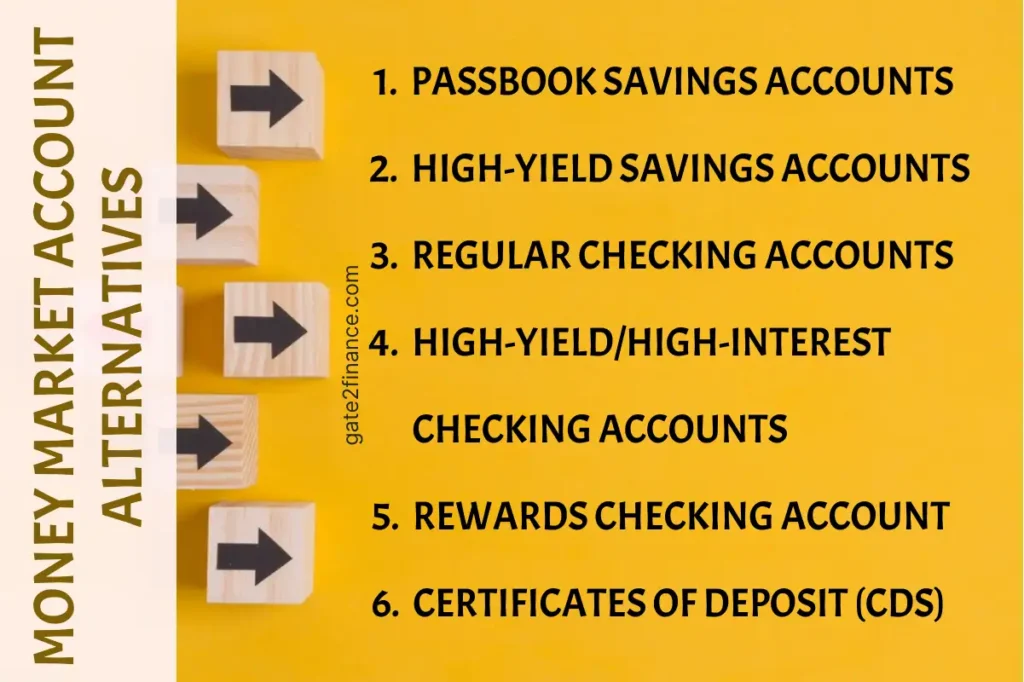What Is a Money Market Account ?
A money market account or money market deposit account is a bank account that pays interest based on money market interest rates. Money market account interest rates are often greater than savings and transaction account interest rates; nevertheless, some banks will require larger minimum amounts in money market accounts to prevent monthly fees and earn income. Money market accounts are distinct from money market funds, that are mutual funds that invest in money market securities.
A money market account is an interest-bearing account held by a bank or credit union. Money market accounts, also known as money market deposit accounts, offer various features that are not present in other types of accounts. Most money market accounts provide greater interest rates than conventional savings accounts and frequently feature check-writing and payment by debit card facilities. They may also have limitations which render them less versatile than a traditional checking account. They are necessary for calculating tangible net value.
History of Money Market Account
The Depository Institutions Deregulation and Monetary Management Act of 1980 initiated a series of actions aimed at gradually deregulating bank deposits, allowing a broader range of account types, and finally eliminating deposit interest ceilings. On December 14, 1982, the Garn-St. Germain Depository Institutions Act authorised money market accounts with a minimum balance of $2,500, with no interest ceiling, and no requirement for maturity, permitting up to six sends out of the account’s balance each month and no withdrawals by messages, messenger, or in person. On January 1, 1986, minimum denominations were deleted, and on May 3, 1988, the restriction that just three of the maximum 6 monthly outward transactions could be made via cheque was lifted.
Money market accounts are governed in the same way as regular savings accounts are. They are FDIC-insured, and while they may offer checking services, the constraints of Federal Reserve Regulation D have discouraged their usage for day-to-day payments. Money market accounts differ from regular savings accounts in practice due to greater balance requirements and a more sophisticated interest rate structure.
How Money Market Accounts Work ?

Money market accounts are financial services available to customers through traditional and internet banks, as well as credit unions. They provide account users with some of the major benefits of a savings account as well as the characteristics of a checking account, such as:
- Interest: Like savings accounts, MMAs allow owners to earn interest on their investments. The rate of interest is usually higher than the interest rate on a conventional savings account. The interest rate, on the opposite hand, is variable, which means it changes as market conditions change.
- Debit Cards: Some banks offer debit cards that come with the account, allowing owners to make withdrawals, deposits, and transfers at automated teller machines (ATMs).
- Check-Writing: In addition to debit cards, customers may be able to generate checks upon their account balances.
Banks often ask for an initial deposit of a certain amount to start an MMA, and balances must remain over a particular threshold while the account is operational. If the amount remaining falls below that level, the bank may levy a service charge.
Money market accounts are appropriate for people who want to get more interest than they’d get with a savings account for short-term aims. As a result, an MMA may be a suitable option if you’re saving for something particular, such as a holiday, a car down payment, or a rainy day or emergency fund. They are not designed for long-term goals such as retirement.
Advantages of a Money Market Account
Money market accounts, like savings accounts, checking accounts, and even certificates of deposit, can provide some of the same benefits. The following are the primary advantages of a money market account:
- Flexibility: If you have numerous accounts at the same bank, depositing funds into a money market account or moving funds across those accounts can be convenient. Possessing an associated debit or ATM card and the ability to write checks can also make paying bills, funding significant expenses, or dealing with a financial crisis simpler and fewer stressful. Money market accounts can also be utilised to fund numerous short and long-term financial goals.
- Competitive rates: Money market accounts can provide competitive rates when compared to other forms of bank accounts. The higher your APY, the more likely it is that your money will grow over time. A money market account may be a suitable fit for your needs if getting the best possible interest on investments while maintaining your money accessible is a priority.
- Safety: Money market accounts, when held with an insured by the Federal Deposit bank or credit union, can provide protection and security. These savings accounts are a safe option to keep money you aren’t required to spend or utilise right now. It’s important to understand that a money market account and a money market fund are not the same thing. Money market funds are a sort of mutual fund that deals in short-term debt instruments and is not a savings account.
- Access: It is critical to have your money available whenever you require it. In contrast to a certificate of deposit, which compels you to leave your money in the account for a specified amount of time, a money market account allows you to access your money at any time. If you need to access your savings for whatever reason, you are able to do so via digital transfer, check, or ATM withdrawal, depending on your bank’s options.
Disadvantages of Money Market Accounts
When thinking about opening an unfamiliar kind of bank account, it’s critical to examine any potential drawbacks. Money market accounts can occasionally fall short of savers’ expectations in the following areas:
- Minimum balance requirements: The minimum balance required to create a money market savings account varies by bank. While some banks may have a $1 minimum, others may require you provide $5,000 or as much as $10,000 to create your account. If you’re new to saving money, the possibilities for opening a money market account may be restricted if you don’t satisfy the bank’s minimum deposit requirement.
- Interest rates: While certain money market bank accounts can provide excellent rates for depositors, others may provide a rate comparable to the APY available from a normal savings account. To qualify for a better rate, you may need to first attain a particular minimum balance in your account, such as $5,000 or $10,000. If receiving the best interest rate on your savings is the most important thing to you, either scenario may make a money market account less appealing.
- Costs: It’s usually a good idea to be informed of any costs that a financial institution may charge when opening a bank account. Banks can impose monthly maintenance fees for money market accounts simply for holding the account. While it may be feasible to avoid the cost by satisfying daily minimum or direct deposit criteria, not every bank provides a workaround. The bigger the cost, the more it might cut into the interest you earn on your savings each month.
- Withdrawal guidelines: Money market accounts and savings accounts have another thing in common when it involves withdraw guidelines. Previously, these accounts were subject to federal regulation D boundaries, which limited easy withdrawals to six per month. While these withdrawal limits were halted permanently because of to the coronavirus epidemic, different financial institutions continue to set their own restrictions on money market account withdrawals. They can also levy a fee for exceeding certain withdrawal limitations.
Money Market Account Alternatives

Credit unions and banks provide a variety of accounts, some of which have features that make them comparable with — or superior to — money market accounts.
Passbook Savings Accounts
Unlike money market accounts, normal savings accounts typically do not require an initial deposit or a minimum level. They also pay interest, though typically not exactly the same as a money market account. Passbook savings accounts, similar money market accounts, are insured by the FDIC or the NCUA.9Verify with your bank to determine if there are limitations on withdrawals.
High-Yield Savings Accounts
Many banks and credit unions additionally provide high-yield savings accounts, and the interest rate may be higher than on their money market accounts, depending on the organisation. High- yielding savings vessels are also insured by the FDIC or the NCUA.3One disadvantage of money market accounts is that it can come with extra restrictions, such as demanding direct deposits.
Regular Checking Accounts
Checking accounts have one significant advantage over money market accounts: they allow for unlimited transactions such as cheques, ATM withdrawals, wire transfers, and so on. They are also insured by the FDIC or the NCUA.53Their primary drawback is that they pay extremely low (sometimes zero) interest rates.
High-Yield/High-Interest Checking Accounts
These accounts, like high-yield savings accounts, offer interest rates that compete with, and occasionally exceed, money market accounts. They also share the primary shortcoming of high-yield savings accounts, which is that they might require more stringent criteria, such as a certain minimum amount of debit transactions per month. They also establish a ceiling, say $5,000, above which the high rate of interest is not applicable. In other ways, high-yield checking is similar to conventional checking in that it includes limitless checks, a debit card, ATM access, and FDIC or NCUA coverage.
Rewards Checking Account
This checking account may provide a sign-up bonus as well as extra benefits such as high yields, ATM charge payments, airline miles, or rewards. The principal disadvantage is identical to that of high-yield checking high costs unless the depositor follows all of the regulations, which vary by institution. Otherwise, rewards checking works much like an ordinary checking account, with the added benefit of FDIC or NCUA insurance.
Certificates of Deposit (CDs)
A CD is similar to a savings account with a set term, such as three, six, nine, or twelve months, or a period of time up to ten. Depositors typically receive a higher rate of return than they would with a conventional savings account in exchange for tying in their money for a certain amount of time. However, if they remove their money (or a portion of it) too soon, they will be penalised, typically in the form of missed interest. Some CDs (referred to as liquid CDs) do not penalise depositors for withdrawals made early but pay a lower interest rate. CDs are FDIC or NCUA-insured, but most do not allow you to create checks, retrieve funds with a debit card, or add to the sum after the first purchase.








